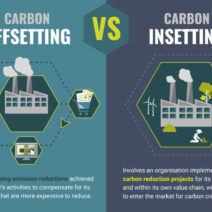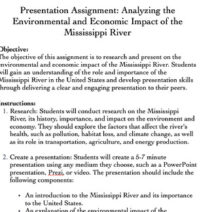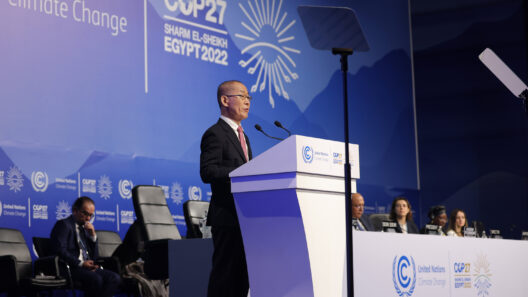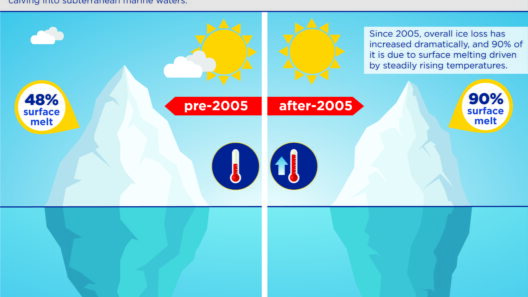As the world glances towards the horizon, a critical question emerges: Are we capable of adapting to an ever-warming planet? This inquiry evokes a playful yet pressing challenge. When discussing climate change, we often focus on its ramifications in a linear manner—temperature rises, severe weather patterns, species extinction, and so on. However, global warming is not merely a backdrop for environmental concerns; it constitutes a profound transformation affecting virtually every aspect of human life. In this discourse, we will delve deeply into how global warming not only reshapes the meteorological landscape but also transforms social structures, economic systems, and cultural norms.
First, consider the physical manifestations of global warming. Higher temperatures are undeniably altering climate patterns. Phenomena such as more frequent hurricanes, droughts, and heatwaves come to mind. The melting of polar ice caps results in rising sea levels that threaten coastal cities worldwide. This reality leads us to question our preparedness: how do we combat such insidious changes? The very fabric of our infrastructure must evolve, necessitating innovations in engineering and urban planning to accommodate these transformations.
However, it is essential to recognize that global warming’s impact extends beyond mere temperature changes. With fluctuating climates, biodiversity suffers significantly. Species that have adapted over millennia to specific ecological niches now face existential threats. If we consider flora and fauna, ponder this: what happens to ecosystems when keystone species begin to disappear? The cascading effects on food webs and habitats can be catastrophic, leading to irreversible changes in our planet’s biodiversity.
Furthermore, the social ramifications of these environmental shifts are intricately woven into the fabric of our societies. As communities grapple with the challenges posed by climate change, conflicts over resources are likely to intensify. Water scarcity, exacerbated by prolonged droughts, can lead to heightened tensions in regions already plagued by geopolitical instability. This intrusion into the socio-political realm necessitates an interdisciplinary approach. Governance and policies must adapt to consider the environmental implications in order to mitigate conflict and foster resilience.
Economically, the effects of global warming present a dual-edged sword. On one hand, catastrophic climatic events result in significant financial costs; the destruction of infrastructure and disruption of commerce strains national economies. On the other hand, the burgeoning field of green technology offers opportunities for innovation and growth. Imagine a future where investments in renewable energy sources not only combat climate change but also stimulate job creation in sectors that prioritize sustainability. This transition could redefine the global marketplace, making it ripe for forward-thinking enterprises that integrate ecological consciousness with economic growth.
Moreover, the psychological impact of climate change cannot be overlooked. As communities witness alterations to their environments, a phenomenon known as eco-anxiety emerges. The pervasive dread of an unstable future affects mental health, challenging communities and individuals to adjust emotionally to new realities. Cultivating resilience in the face of adversity becomes paramount; educational initiatives aimed at empowering individuals must rise to meet this challenge.
In addition to these pressing concerns, global warming fundamentally alters cultural dynamics. Communities historically reliant on specific environmental conditions face profound disruptions. Cultural traditions tied to seasons or agricultural practices may become obsolete as climate patterns shift. This transitional phase begs the question: how can cultures adapt while preserving historical legacies? Innovative approaches to cultural preservation could spark the creation of new traditions rooted in sustainability, allowing societies to weave past and future together in a harmonious tapestry.
Finally, the intrinsic relationship between climate change and global equity cannot be ignored. Vulnerable populations often bear the brunt of environmental transformations, as they typically lack the resources to adapt or recover from climate impacts. In low-lying areas vulnerable to flooding, entire communities may find themselves displaced, creating a new category of climate refugees. This reality prompts crucial questions about justice and equity: How do we ensure that those most affected receive support and protection? Collaborative efforts across international borders become essential, as addressing global warming and its consequences is fundamentally a collective responsibility.
In contemplating the vast dimensions of global warming, it becomes clear that this issue transcends mere weather forecasts or scientific predictions. The intricate web of interactions between climate change and societal frameworks is woven tightly together, suggesting that a holistic approach is necessary. Every individual, community, and nation must consider their role in this evolving narrative. As we face the challenge posed by global warming, the path forward demands a synthesis of advocacy, innovation, and resilience.
Thus, the pressing question remains: are we prepared to meet this challenge head-on? Will we cultivate a spirit of collaboration and commitment to not just survive but thrive in the face of climate change? The time has come to envision a future where humanity not only confronts global warming but reshapes our world into one that prioritizes sustainability, equity, and hope. Together, we can strive towards this transformative goal, ensuring a livable and prosperous future for generations to come.








